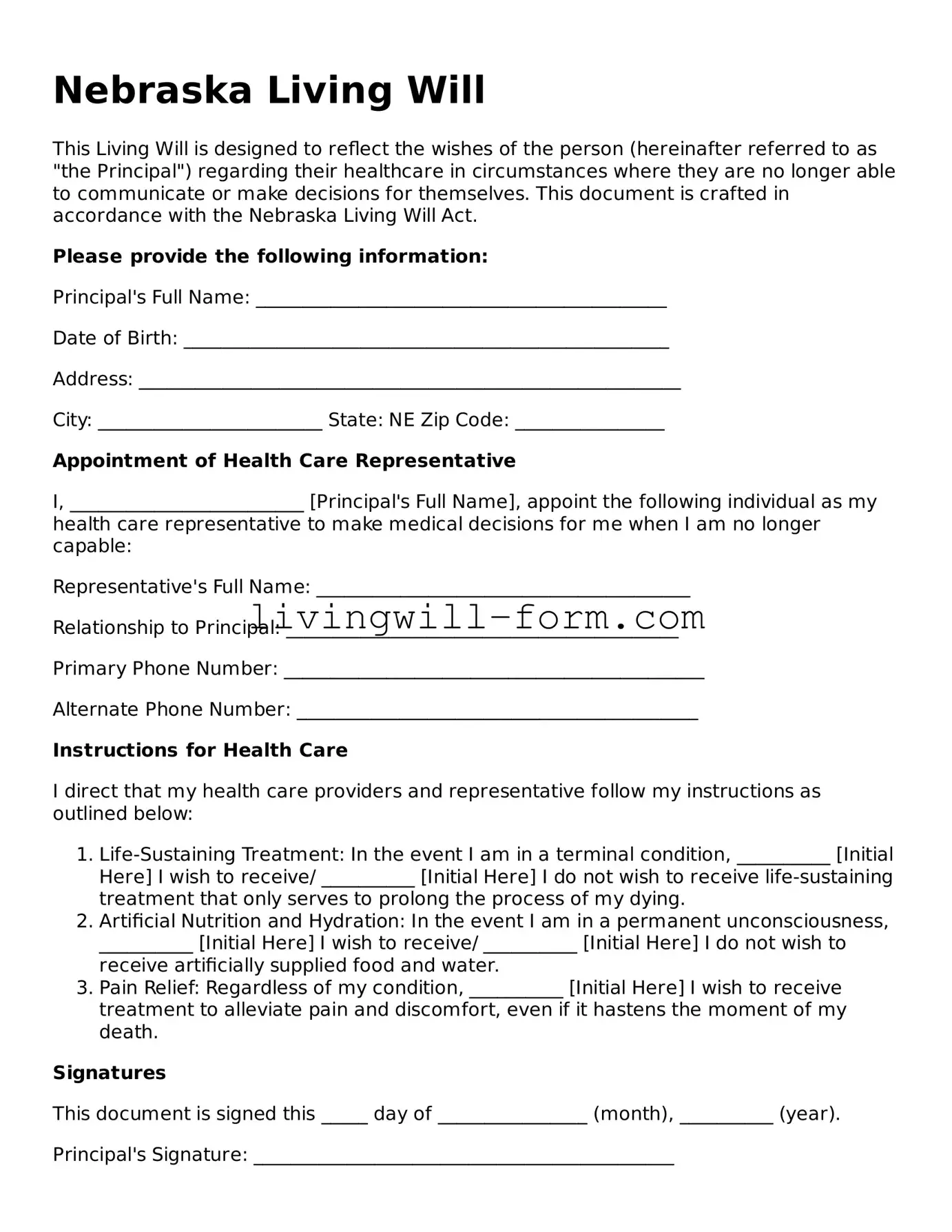Nebraska Living Will
This Living Will is designed to reflect the wishes of the person (hereinafter referred to as "the Principal") regarding their healthcare in circumstances where they are no longer able to communicate or make decisions for themselves. This document is crafted in accordance with the Nebraska Living Will Act.
Please provide the following information:
Principal's Full Name: ____________________________________________
Date of Birth: ____________________________________________________
Address: __________________________________________________________
City: ________________________ State: NE Zip Code: ________________
Appointment of Health Care Representative
I, _________________________ [Principal's Full Name], appoint the following individual as my health care representative to make medical decisions for me when I am no longer capable:
Representative's Full Name: ________________________________________
Relationship to Principal: __________________________________________
Primary Phone Number: _____________________________________________
Alternate Phone Number: ___________________________________________
Instructions for Health Care
I direct that my health care providers and representative follow my instructions as outlined below:
- Life-Sustaining Treatment: In the event I am in a terminal condition, __________ [Initial Here] I wish to receive/ __________ [Initial Here] I do not wish to receive life-sustaining treatment that only serves to prolong the process of my dying.
- Artificial Nutrition and Hydration: In the event I am in a permanent unconsciousness, __________ [Initial Here] I wish to receive/ __________ [Initial Here] I do not wish to receive artificially supplied food and water.
- Pain Relief: Regardless of my condition, __________ [Initial Here] I wish to receive treatment to alleviate pain and discomfort, even if it hastens the moment of my death.
Signatures
This document is signed this _____ day of ________________ (month), __________ (year).
Principal's Signature: _____________________________________________
State of Nebraska, County of ___________________: This document was acknowledged before me on (date) __________________ by (name of principal) _________________________________.
Notary Public Signature: ____________________________________________
My commission expires: _____________________________________________
Witness Declaration
I declare under penalty of perjury under the laws of Nebraska that the principal appears to be of sound mind and under no duress, fraud, or undue influence to sign this living will:
Witness 1 Signature: _______________________________________________
Witness 1 Printed Name: ____________________________________________
Witness 1 Address: _________________________________________________
Witness 2 Signature: _______________________________________________
Witness 2 Printed Name: ____________________________________________
Witness 2 Address: _________________________________________________

